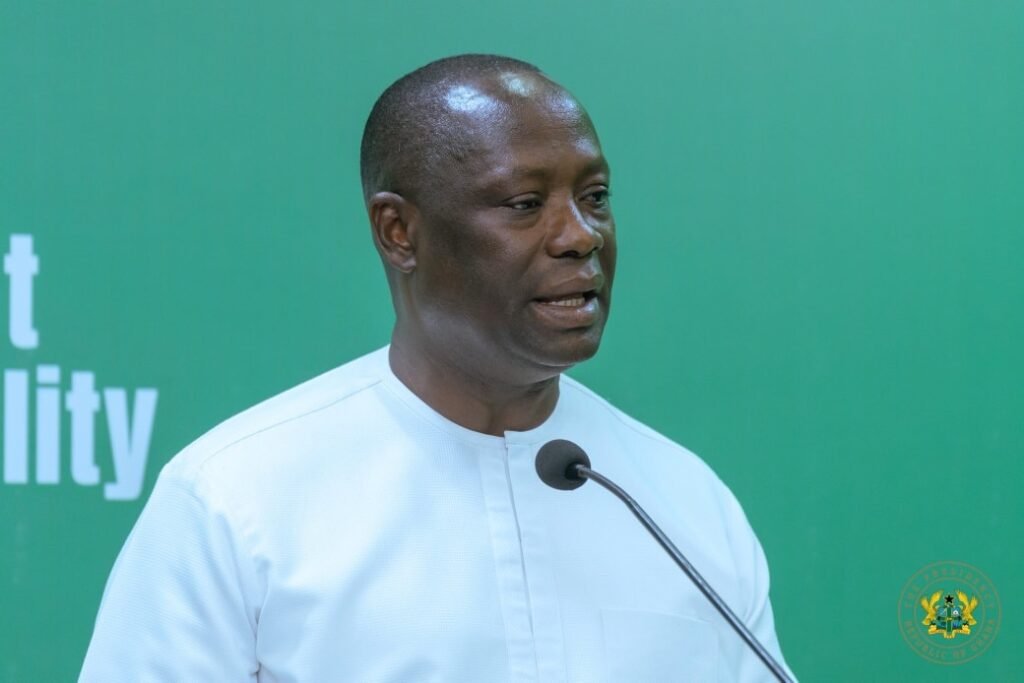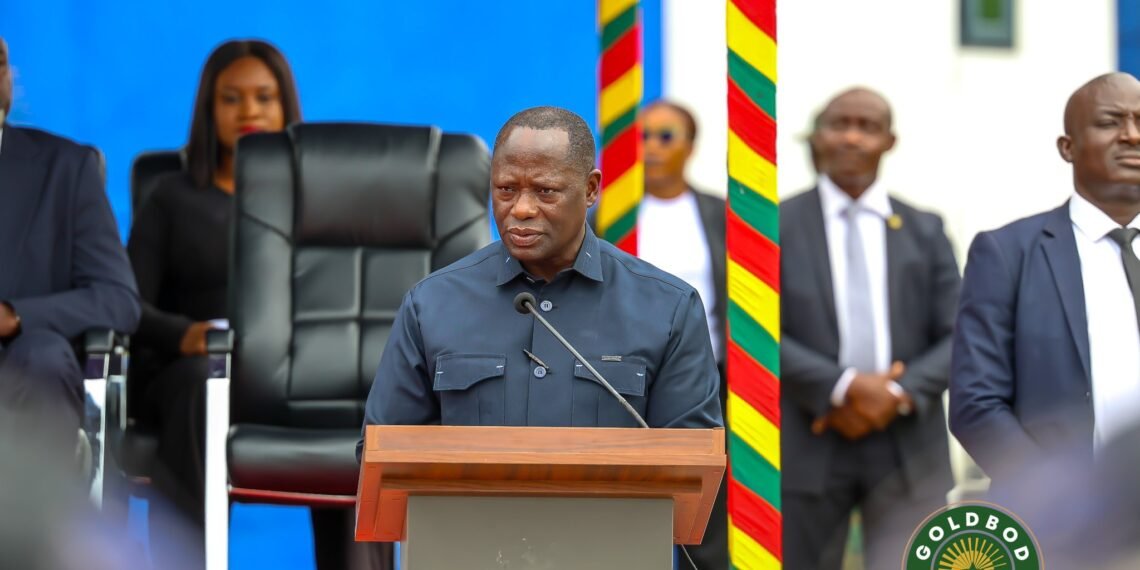The Minister for Lands and Natural Resources, Hon. Emmanuel Armah Kofi Buah, has underscored government’s renewed commitment to empowering the Ghana Geological Survey Authority (GSA) to support sustainable and responsible natural resource management, particularly in the small-scale mining sector.
Speaking at the latest edition of the Government Accountability Series in Accra, the Minister emphasised the strategic importance of the GSA’s geological investigations in guiding the country’s extractive and infrastructural development efforts.
The Minister began by underscoring the urgency of strengthening geological investigations in Ghana, particularly through a well-resourced Geological Survey Authority.
According to him, one of the main drivers behind unregulated and environmentally destructive small-scale mining is the lack of accurate geological data among miners. “Why are people mining everywhere? Because they don’t know where the gold is,” Hon. Armah Kofi Buah stated candidly.

He explained that if the country could fully identify mineralised areas, it would be easier to direct and regulate small-scale miners into designated zones. This, he emphasized, would help minimize environmental damage and protect critical natural resources such as land and water bodies.
“The Ghana Survey authority is to support small-scale miners with data on mineralised areas to assist with proper and regulated mining activities, and we intend to retool the authority to delve into this mandate.”
Minister for Lands and Natural Resources, Hon. Emmanuel Armah Kofi Buah
Mapping Mineralized Zones
The Minister reiterated that retooling the GSA is not merely a bureaucratic effort, but a national necessity. By equipping the agency with the tools and capacity to map mineralised zones more precisely, the government aims to introduce greater order into Ghana’s mining sector, where illegal mining—commonly known as “galamsey”—has wreaked havoc in several regions.
Beyond mining, Hon. Armah Kofi Buah noted that the Ghana Geological Survey Authority has taken on a broader role in the development agenda, particularly through the commoditisation of seismic activities nationwide.
He explained that the GSA has been collecting and analysing seismic data to assess Ghana’s vulnerability to geological hazards, and the results have been reassuring.
“With data confirming no imminent geological risk to our country, critical findings are also utilised to inform engineering designs for infrastructure development, enhancing construction and safety standards as well”.
Minister for Lands and Natural Resources, Hon. Emmanuel Armah Kofi Buah
This application of geological science, he said, contributes significantly to safer building practices and resilient national infrastructure.

Geothermal Energy
Turning to energy matters, Hon. Armah Kofi Buah revealed that the GSA has conducted geothermal investigations and mapping to assess the feasibility of integrating geothermal energy into Ghana’s energy mix.
He described this initiative as a step toward expanding the country’s renewable energy portfolio in line with national sustainability goals.
“This is very, very critical in making sure that we have an energy mix that has a lot of renewable energy. It will help really meet our renewable energy targets.”
Minister for Lands and Natural Resources, Hon. Emmanuel Armah Kofi Buah
As Ghana explores ways to diversify its energy sources, geothermal energy could offer a steady and environmentally friendly complement to solar and wind power.
The Minister stressed that such investigations are not only scientific exercises but also strategic policy tools to guide future investments in the energy sector.
In addition to its work in the mining and energy sectors, the GSA is also focusing on mineral resources critical to industrial development.
Hon. Armah Kofi Buah disclosed that the Authority is completing a major investigation into clay deposits in the Greater Accra, Volta, and Central regions.
According to him, preliminary assessments indicate that these areas hold significant potential for industrial-grade clay, which could serve as vital raw material for Ghana’s ceramic and cement industries.
“It’ll prosper to boost local industrial production and contribute to economic growth and job creation. And I’ve been reliably informed that these three regions hold great potential for these minerals.”
Minister for Lands and Natural Resources, Hon. Emmanuel Armah Kofi Buah
He said the data from these clay investigations will not only inform local manufacturing strategies but also open new economic opportunities for communities in the identified regions.

By tapping into these natural resources in a planned and sustainable way, the government hopes to link mineral exploration directly to local job creation and national industrial growth.
Hon. Armah Buah concluded by reiterating the importance of the Geological Survey Authority in shaping a forward-looking, scientifically grounded natural resource management strategy for the country.
“That is why we are strongly focused on retooling the Ghana Geological Survey,” he said, noting that the institution’s work goes far beyond research to touch on livelihoods, environmental sustainability, infrastructure safety, and energy security.
READ ALSO: Lands Minister Commits to Safeguarding Ghana’s Forest Cover


















